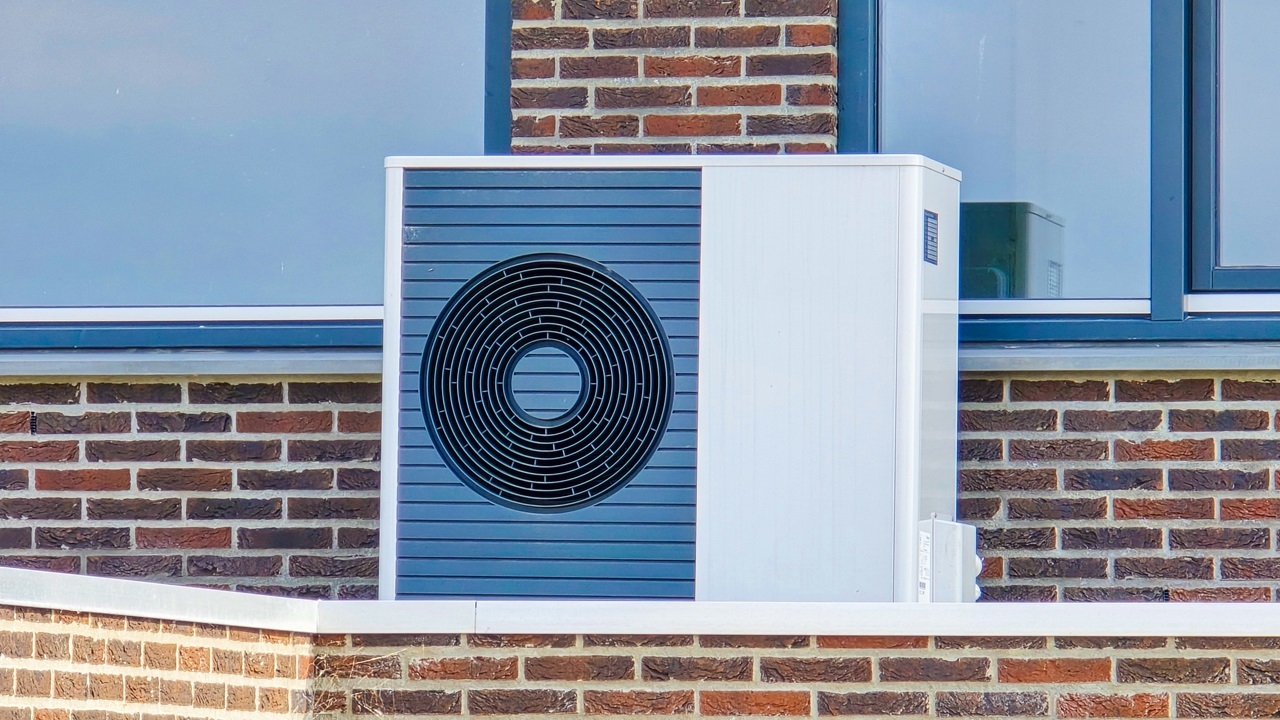Choosing the right heat pump for your new construction project is a critical decision. The heating and cooling system you select will impact your home’s comfort, energy efficiency, and overall cost of operation. We understand the complexities involved in making this choice and are here to guide you through the process.
Understanding the Types of Heat Pumps
Selecting the right heat pump for your new construction project starts with understanding the different types available. Each type has its advantages and considerations, which can significantly impact your decision.
Air Source Heat Pumps
Air source heat pumps are a popular choice due to their efficiency and ease of installation. These systems transfer heat between the inside of your home and the outside air. They are generally simpler to install and less expensive upfront compared to other types. Air source heat pumps work well in moderate climates but may be less effective in extremely cold temperatures. Our professionals can help you determine if an air source heat pump is suitable for your new construction project.
Ground Source Heat Pumps
Ground source heat pumps, also known as geothermal heat pumps, utilize the stable temperatures underground to provide heating and cooling. These systems are highly efficient and can significantly lower your energy bills over time. However, they require more extensive installation procedures, including drilling and installing underground loops, which can make the initial costs higher. Despite the upfront costs, the long-term savings and environmental benefits make ground source heat pumps an appealing option for many new construction projects.
Hybrid Heat Pumps
Hybrid heat pumps combine the best features of both air source and ground source systems. They can switch between using the air and the ground as heat sources, optimizing efficiency based on current conditions. This flexibility makes hybrid heat pumps highly efficient and reliable year-round. Though the initial installation can be more complex and costly, the adaptability of these systems can offer long-term benefits and energy savings.
Key Factors to Consider
When selecting a heat pump for your new construction project, several key factors should influence your decision. These considerations will help ensure you choose a system that meets your needs and provides optimal performance.
Climate and Geographic Location
The climate and geographic location of your new build play a significant role in determining the best type of heat pump. For example, air source heat pumps are efficient in moderate climates, while ground source heat pumps are more reliable in regions with extreme temperatures. Our professionals can assess your specific location to recommend the most suitable heat pump type.
Energy Efficiency and SEER Ratings
Energy efficiency is crucial for reducing operational costs and environmental impact. Heat pumps are rated using the Seasonal Energy Efficiency Ratio (SEER), and higher SEER ratings indicate greater efficiency. Selecting a heat pump with a high SEER rating ensures that your system will operate efficiently, providing better performance and lower energy bills. Our technicians can help you understand the SEER ratings and choose the most efficient option for your new construction project.
Initial Costs and Long-Term Savings
While the initial cost of a heat pump is an important consideration, it is also essential to account for long-term savings. More efficient systems may have higher upfront costs but offer significant savings on energy bills over time. Additionally, certain heat pump types, like ground source systems, can lead to reduced maintenance costs and longer lifespans. Our team can provide you with a comprehensive cost analysis, weighing initial expenses against potential long-term savings, to help you make an informed decision.
Sizing and Installation
Importance of Proper Sizing
Proper sizing of your heat pump is crucial for efficient operation and comfort. A heat pump that is too small will struggle to maintain the desired temperature, leading to constant running and increased wear. Conversely, a system that is too large will cycle on and off frequently, causing unnecessary strain and energy waste. Our professionals use detailed calculations based on the size and layout of your new construction to recommend the ideal heat pump size.
Installation Requirements and Procedures
Installing a heat pump involves several critical steps to ensure optimal operation. These include setting up the outdoor and indoor units, connecting refrigerant lines, and configuring the thermostat. Proper placement and installation of these components are essential for efficient performance. Our technicians follow industry best practices to make sure every aspect of the installation is handled correctly. This ensures that your heat pump operates reliably and efficiently from day one.
Role of Professional Technicians
Professional technicians are indispensable when installing a heat pump. Our technicians have the training and experience to handle the technical aspects of heat pump installation safely and effectively. They also ensure that all connections are secure and units are properly positioned. Hiring our professionals guarantees that your system will function as it should, providing your new construction with reliable heating and cooling.
Maintenance and Longevity
Routine Maintenance Tasks
Routine maintenance is essential for keeping your heat pump running smoothly. Regular tasks include changing filters, cleaning coils, and checking refrigerant levels. These maintenance activities prevent minor issues from escalating into significant problems. Our technicians perform comprehensive maintenance checks to ensure your heat pump operates at peak efficiency.
Potential Issues and Repairs
Even with regular maintenance, issues can still arise. Common problems include refrigerant leaks, thermostat malfunctions, and worn-out components. Early detection and repair of these problems can prevent more severe damage to your system. Our professionals are skilled in diagnosing and repairing various heat pump issues, ensuring your system returns to optimal function quickly.
Expected Lifespan and Warranty Considerations
The expected lifespan of a heat pump can vary based on type, usage, and maintenance. Generally, heat pumps can last between 10 and 15 years with proper care. It’s essential to understand warranty terms and what is covered in case of breakdowns. Our team can help you navigate warranty considerations and offer guidance on extending the life of your heat pump through regular maintenance.
Conclusion
Choosing the right heat pump for your new construction project involves understanding the types available, considering key factors, ensuring proper sizing and installation, and planning for ongoing maintenance. Each of these elements plays a vital role in the efficiency and longevity of your heating and cooling system. By making informed decisions at each step, you can enjoy a comfortable and energy-efficient home.
Proper installation and maintenance are crucial for the optimal performance of your heat pump. At Vardell’s AC, our professionals are dedicated to providing top-notch service from selection and installation to ongoing maintenance and repairs. Trust our experienced technicians to keep your new construction project on track and ensure the long-term reliability of your heating and cooling system.
Contact us today to schedule a consultation and find the perfect heat pumps in Yuba City for your new construction project. Our team is here to help you make the best choices for a comfortable and efficient home.



